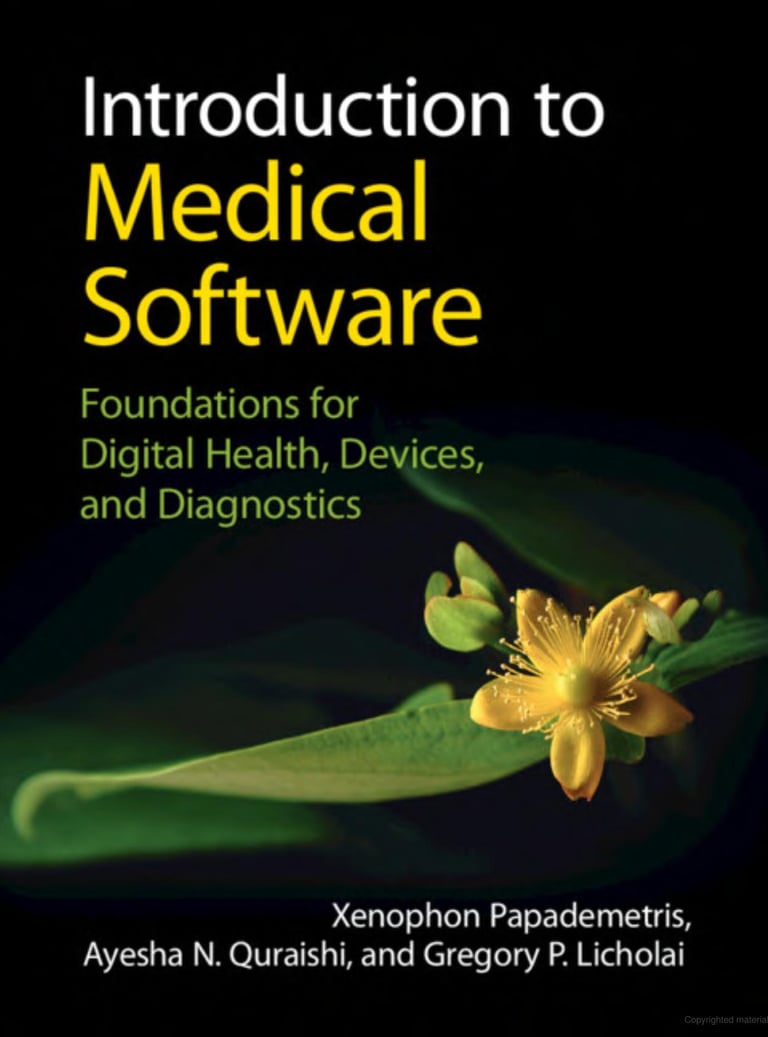Foundations for Digital Health, Devices, and Diagnostics
Cambridge University Press 2022
Description
Providing a concise and accessible overview of the design, implementation and management of medical software, this textbook will equip students with a solid understanding of critical considerations for both standalone medical software (software as a medical device/SaMD) and software that is integrated into hardware devices. It includes: practical discussion of key regulatory documents and industry standards, and how these translate into concrete considerations for medical software design; detailed coverage of the medical software lifecycle process ; accessible introduction to quality and risk management systems in the context of medical software; succinct coverage of essential topics in data science, machine learning, statistics, cybersecurity, software engineering and healthcare bring readers up-to-speed; six cautionary real-world case studies illustrate the dangers of improper or careless software processes. Accompanied by online resources for instructors, this is the ideal introduction for undergraduate students in biomedical engineering, electrical engineering and computer science, junior software engineers, and digital health entrepreneurs.
Authors
Xenophon Papademetris,Yale University, Connecticut;
Ayesha N. Quraishi, ,Harvard Medical School and Yale University, Connecticut;
Gregory P. Licholai, Yale University, Connecticut.
Authors
Ximena Benavides, Greg Licholai, Yale university
Editors
Oleksandr Sverdlov, Joris van Dam
Chapman and Hall/CRC 5 December 2022
Description
The digital health universe has rapidly expanded in size and capabilities. With the volume of medical data collected expected to double multiple times per year, healthcare data density and usage have grown exponentially. This spike. in data has been facilitated by the advent of novel technologies for data analytics such as artificial intelligence, machine learning, and mobile computing. There has been a commensurate increase in the number of integrated healthcare data networks whose objectives are to collect, aggregate, and disseminate insights from mined data to enable more intelligent medical services and decision-making. In parallel, digital health products have become integral to health. Applications that allow users to self-monitor their health, medical devices that monitor patient outcomes and enable telehealth visits, and products that treat medical conditions otherwise unaddressed by traditional medications are part of healthcare delivery.
Authors
Isaac R. Rodriguez-Chavez, FDA; Greg LicholaiGreg Licholai, Yale university
Editors
Oleksandr Sverdlov, Joris van Dam
Chapman and Hall/CRC 5 December 2022
Description
The use of Digital Therapeutics (DTs) promises effective healthcare interventions as well as the potential for reducing costs and improving access through advances in digital communication technology platforms (e.g., smartphones, tablets, and laptops) and digital health technologies ([DHTs] e.g., wearable devices and sensors). Demonstration of new medical product safety and efficacy depends on the generation of data quality and integrity through clinical development while ensuring the safety of trial participants. However, contemporary medical product development following a traditional clinical testing program is often an extremely lengthy and expensive process due to complex experimental designs under legal and regulatory frameworks. Furthermore, traditional clinical trials may lack the inclusion of diverse populations that represent the current makeup of societies globally, hence compromising the generalizability of results and the usability of new medical products. The lack of inclusion and diversity in clinical research has been a historical problem associated with multiple barriers, including access to trials.



